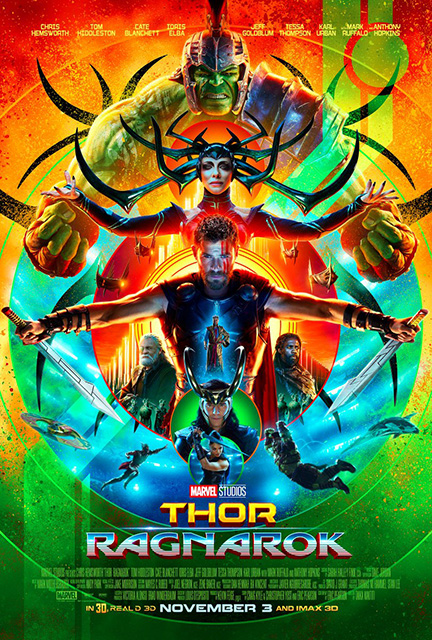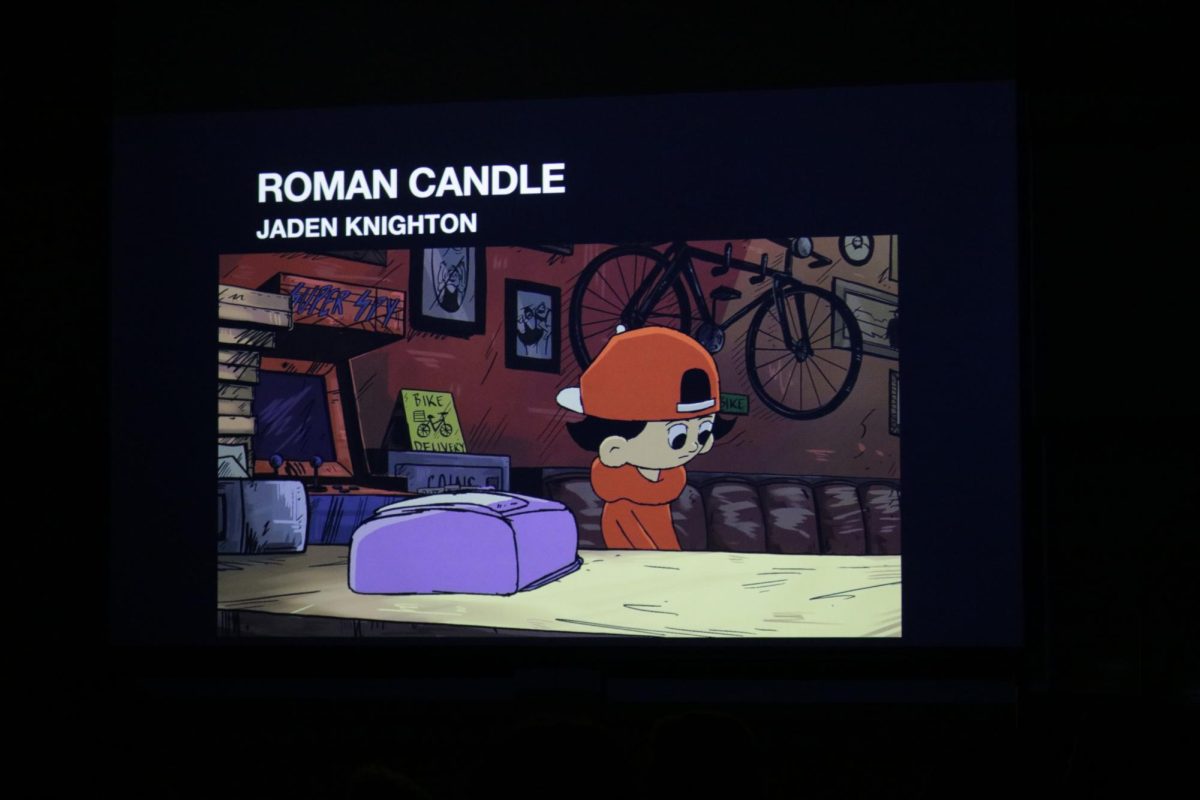The superhero movie machine known as the Marvel Cinematic Universe has been pumping out films every year—exciting both nerds and common folk alike. Marvel’s most recent outing, “Thor: Ragnarok,” landed in theatres on Nov. 3, hammering its way to the top of the box office. As the final entry in the Thor trilogy, the film had a lot to prove. With the previous two films being overshadowed by the teetering Iron Man Trilogy and the surprisingly solid Captian America trilogy, many fans questioned the necessity of a third Thor film. The studio responded to these questions by releasing a truly odd Marvel film. “Thor: Ragnarok” presents a unique and fresher approach to the Marvel formula.
Genre shift
The film differs from its contemporaries in terms of its genre—comedy. Similar to “Deadpool,” “Thor: Ragnarok” offers a much lighter tone than its predecessors and does longtime audiences a favor by not taking itself too seriously. It proves a fast paced, lighthearted adventure, which fans and less committed viewers alike can enjoy. The film boasts of myriad quirky jokes and dry, situational comedy that reflects the director, Taika Waititi’s, personality. Lately, Marvel has struck an effective balance between humor and high stakes drama. “Thor: Ragnarok” offers a fresh take on the genre. Waititi’s style gives the film a wacky and off-the-wall tone that leans into the silly nature of comic book films.
Apart from the novel style of humor, the stellar cast acts as the pieces that truly hold “Thor: Ragnarok” together. Chris Hemsworth earns praise with some previously underutilized comedic class, balanced with his character’s deeper conflict and emotion. Tessa Thompson impresses by playing a traumatized character with a painful backstory in a light hearted film. Although Mark Ruffalo does not have too much to do, he makes a hulking impact on the film with a surprisingly comedic performance, even as the Hulk. The highly esteemed Jeff Goldblum also leaves his mark on the film by pulling off the most quirky and absurdly over-the-top bon vivant in the entire MCU. Cate Blanchett excels, as usual, and makes a menacing villain out of a rather shallow antagonist.
Uninspired narrative
Even though the movie stands apart due to its A-list cast and comedic freshness, its plot comes up short. The film’s witty approach offers many benefits, but it also takes its toll on the narrative. The cast, along with the director’s vision, create a lighthearted tone that makes it difficult for audiences to buy into the gravity of the plot. For example, Blanchett’s Hela—the goddess of death—returns to conquer Asgard and then the rest of the universe, but it never quite feels like it. The film fails to generate a sense of urgency that makes the audience truly worry about the outcome of the plot, or even about the fate of its heroes.
The story hits all the comic book movie tropes. The hero suffers an early setback by some random bad guy—a bad guy that no one knew existed before the film—and he has to find his way back home before he learns a valuable lesson from his deceased father figure that enables him to overcome the villain. Hela also feels like a missed opportunity. With such an accomplished actor in such a key role, more could have been done to break Marvel’s forgettable villain curse.
Although “Thor: Ragnarok’s” plot proves uninspired, the film still serves as an energetic and fun adventure that remains worth the trip to the theatres.







